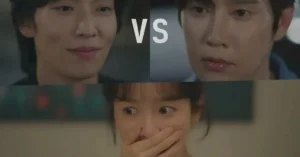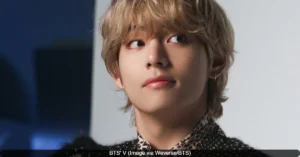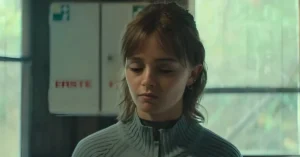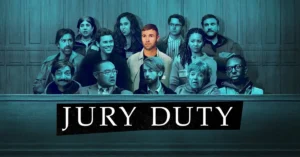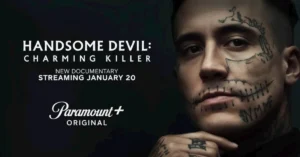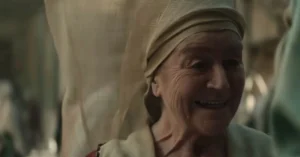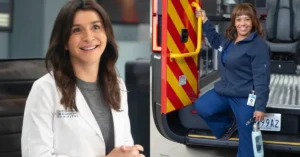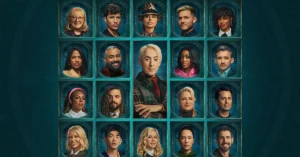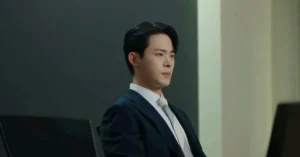The new Netflix thriller Wayward has quickly climbed the streaming charts, leaving viewers unsettled by its depiction of Tall Pines Academy, a school for troubled teens with sinister practices. This has led many fans to ask a compelling question: is this haunting story pulled from real-life events?
While the town of Tall Pines and its academy are fictional, the series is deeply rooted in the very real and controversial “troubled teen” industry. The show’s creator, Mae Martin, drew inspiration from the personal experience of their best friend, who was sent to a similar institution as a teenager.
“I was a wayward teen in the early 2000s, and my best friend was sent to one of these troubled teen institutes when she was 16,” Martin explained. “When she came back, she had the craziest stories about it.”
The Real-Life Inspiration Behind the Fiction
The core of Wayward stems from a true story of friendship and trauma. Martin’s best friend, Nicole, was taken from her home in the middle of the night and spent two years in a program before ultimately escaping. Nicole served as a consultant on the series, ensuring the story reflected the realities many have faced.
The show’s writers’ room also included a writer who had personally attended one of these controversial schools. Martin conducted extensive research into the troubled teen industry, discovering that its origins are often linked to self-help groups and cults from the 1970s.
“In researching these schools—a lot of which are now being talked about in different documentaries—I learned about Synanon,” Martin said. “That was a self-help cult in the ’70s in LA, which was ultimately shut down, but it kind of transformed and was part of the beginnings of the ‘troubled teen’ industry.”
The Sinister Cult That Influenced Tall Pines
The series directly mirrors techniques used by the real-life religious movement and rehab community, Synanon. Founded in 1958, Synanon initially offered an alternative to Alcoholics Anonymous but evolved into a dangerous cult.
It employed a method called “the Synanon game,” a form of confrontational group therapy where participants would scream their raw thoughts at one another before hugging. This practice is eerily similar to the “Hot Seat” game shown in Wayward, where students violently verbally attack a classmate.
Synanon members were forced to shave their heads, wear uniforms, and live on a compound. The group’s leader, Charles Dederich, was later sentenced to probation after a member placed a rattlesnake in the mailbox of a lawyer who had sued the group.
A Glimpse Into the Troubled Teen Industry
Wayward shines a light on an industry that has recently faced increased scrutiny. In June 2024, a U.S. Senate Finance Committee report exposed the abusive and neglectful practices at youth residential treatment facilities, stating that children often leave “even more traumatized than when they arrived.”
These facilities, sometimes called therapeutic boarding schools or wilderness therapy programs, are known for their highly structured, intensive environments where teens are placed under 24/7 supervision, away from their families.
“This is used as a framework for a pretty wacky thriller, but it’s something that I care deeply about,” Martin noted. “If it can start conversations about that industry, then that’s really helpful. And actually, you don’t have to dial up the horror too much. The more you research it, there is a lot of information about missing kids, and all kinds of abuse and neglect.”
How the Show Fictionalizes Real Experiences
In Wayward, the academy’s most extreme practice is called “the Leap,” a ritual where students are drugged with psychedelic toad venom to sever their connection to past trauma and their parents. While the Leap itself is a fictional device, it represents the real-life “breaking down” of individuals that occurs in such programs.
The show’s brutal group therapy sessions are also barely an exaggeration of reality. Martin confirmed that the attack therapy portrayed was not heavily heightened for the show, and that some real-world practices are “almost more theatrical.”
The series has been praised for its authentic portrayal, with co-star Sydney Topliffe sharing that during filming, she learned of someone who almost sent a family member to a similar school after being convinced by its marketing, only to discover alarming reports on Reddit at the last moment.
A Story That Extends Beyond the Screen
By blending a gripping thriller with real-world inspiration, Wayward does more than just entertain. It connects viewers to a pressing social issue, giving a voice to survivors of an industry that operates largely out of the public eye. The show’s power comes from knowing that the eerie feeling it creates is rooted in true stories of escape and survival.
Also Read: Will There Be Wayward Season 2? Renewal Possibilities and More
Credits: Forbes, TIME, Netflix Tudum

